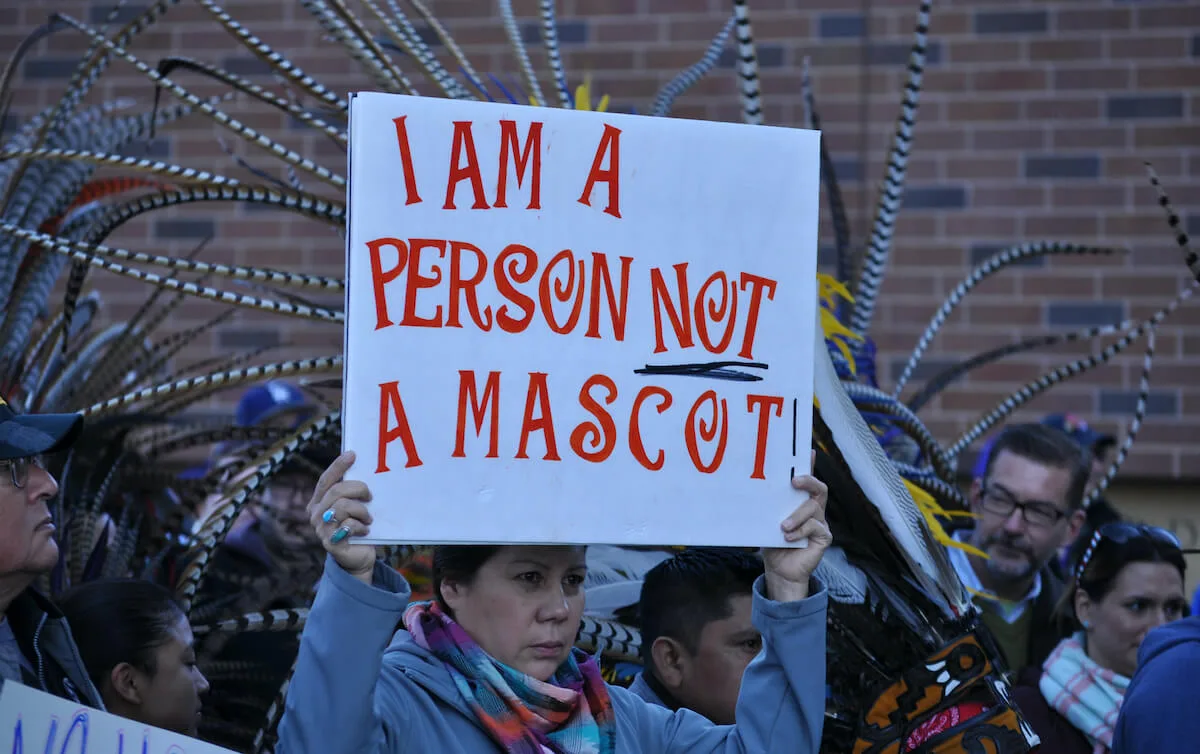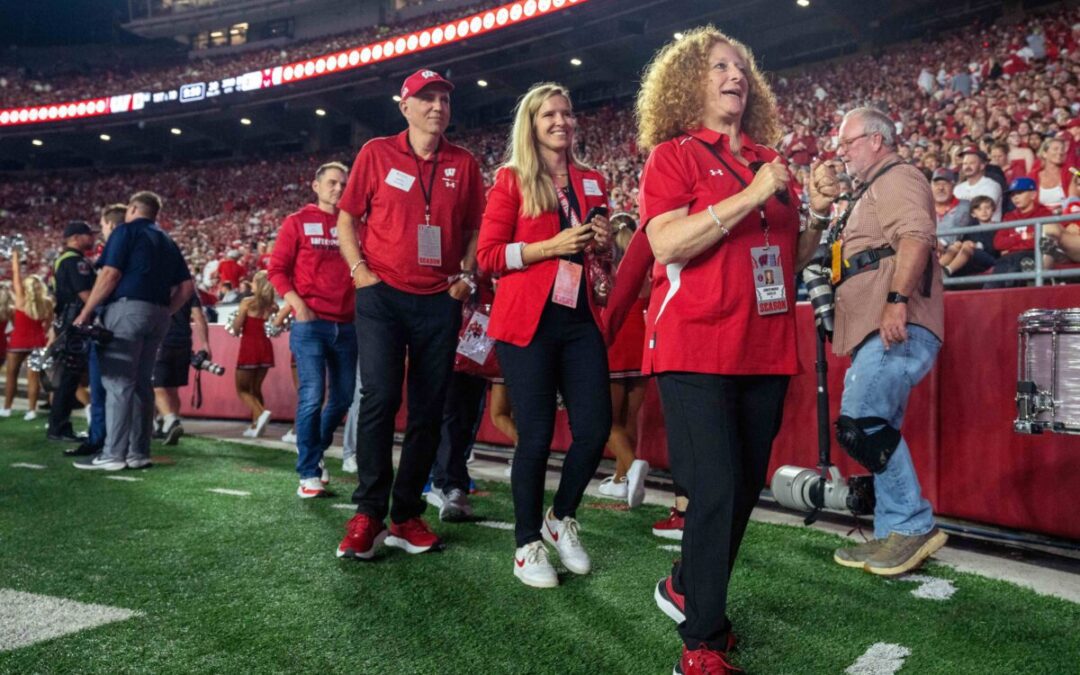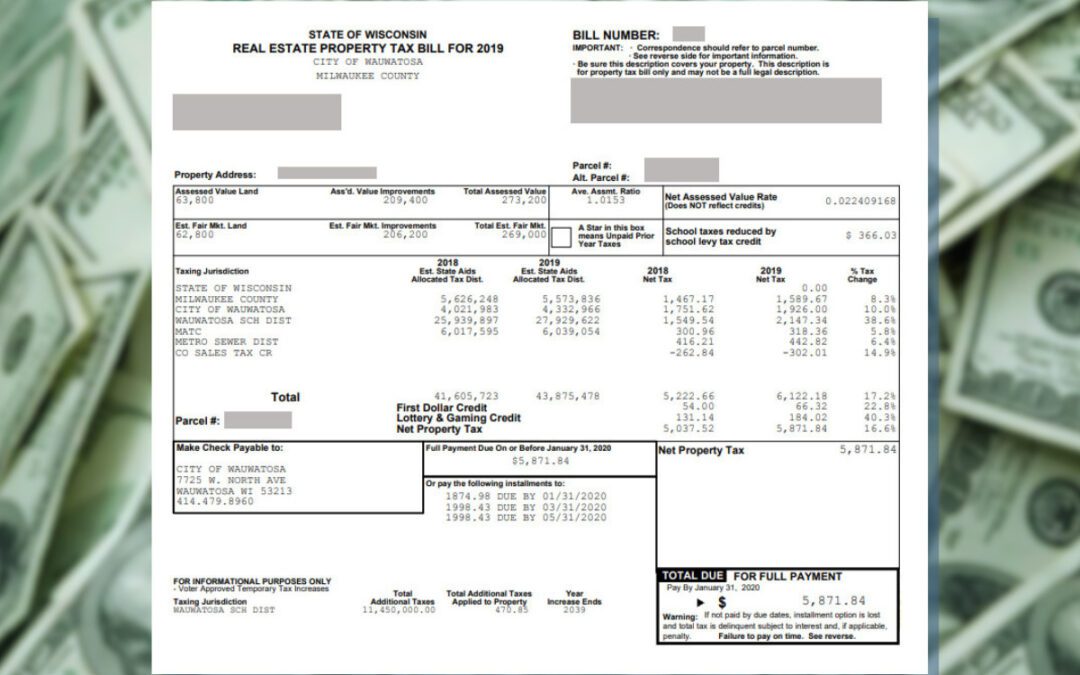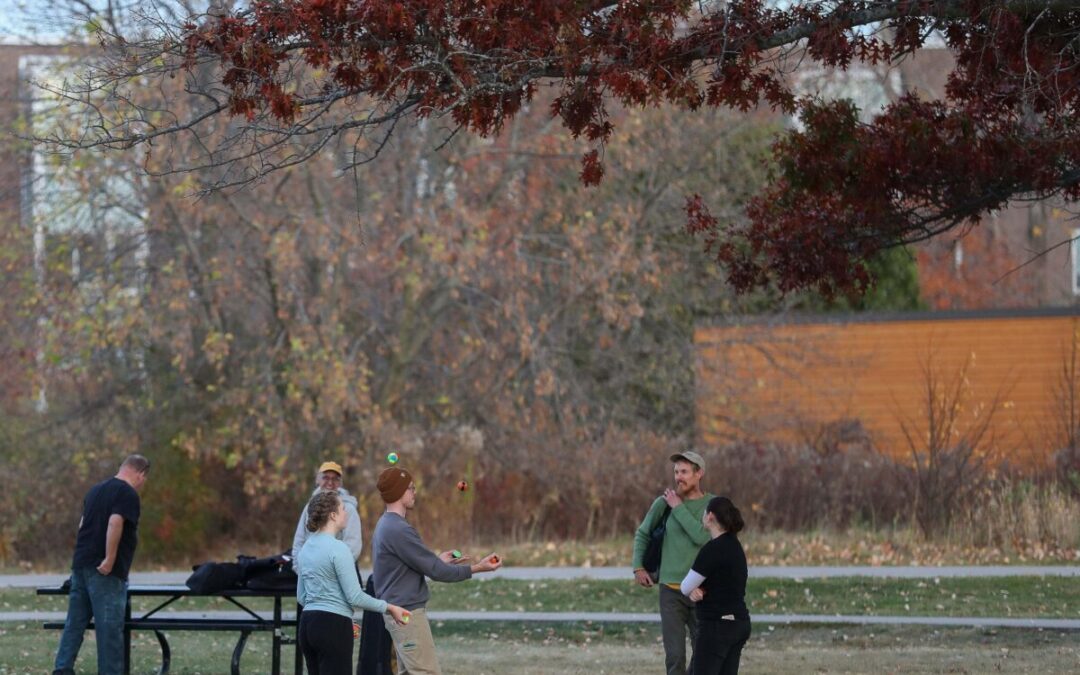
#image_title
Issue gets renewed attention as NFL team drops racial slur from its name after 87 years.
When Madison Common Council member Arvina Martin first heard rumbles in the sports media Sunday that the NFL franchise in Washington, D.C., could be changing its name after using a racial slur for Native Americans for the past 87 years, her first reaction was “is this really happening?”
“I didn’t want to get the football pulled away from me by Lucy again,” Martin said, putting herself in Charlie Brown’s place in the long-running Peanuts comic strip gag.
An enrolled member of the Ho Chunk and Stockbridge Munsee, Martin has been advocating for the school districts across Wisconsin to no longer use the logos and symbols of Indigenous people for more than a decade.
Even before she could testify at public hearings, she thought it was “total garbage” when she first learned about the Washington football team and Major League Baseball’s Atlanta Braves. She said because so many people have never had any interactions with a Native American, the mascots perpetuate a two-dimensional view of how people lived in the past. This prevents people seeing them as contemporaries, she said.
“I remember when I was 10 or 11-years-old wondering ‘why are they using pictures of us,’” Martin told UpNorthNews Monday. “These mascots are probably the reason that when I go somewhere and when people learn I am Indian they ask me if I live in a teepee or ride horses.”
The NFL franchise in Washington, D.C, said Monday it is officially retiring its name and logo that has adorned helmets, merchandise, and T-shirts since 1933, acknowledging after years of public pressure and growing backlash from sponsors that its name is a slur against Native Americans.
“Today, we are announcing we will be retiring the Redskins name and logo upon completion of this review,” said the team in a statement Monday.
The statement indicated the review to replace the name “has begun in earnest and as part of the process, we want to keep our sponsors, fans, and community apprised of our thinking as we go forward.”
The team did not elaborate on what its new name would be, saying only that team owner Dan Snyder and head coach Ron Rivera are “working closely to develop a new name and design approach.”
“I’m glad this is happening but let’s not kid ourselves. Native advocates have been asking for the name to be changed for over 50 years,” said Tricia Zunker, a member of the Ho Chunk nation and president of the Wausau School Board. “This change is prompted by the possible loss of $620 billion in ad and shareholder revenue.”
Martin agreed that in this situation, money talks.
“I am under no delusions that Dan Snyder has had a change of heart,” Martin said. “I’m kind of nervous that they are going to say — well, now we are the Washington Warriors. So it’s not a slur but we’re still going to have a spear here and we’ll let you all dress and do the same things as before.”
At the Wausau School Board meeting Tuesday night, Zunker said she plans to reintroduce a resolution she first introduced in July. The resolution calls for retiring the use of Native American mascots, symbols, images, logos, and nicknames from Wisconsin public schools.
Currently, 29 public schools in Wisconsin still use Native American symbols or mascots. The total was 31 but Menomonee Falls and Elmwood changed their names since her resolution was first introduced in July. Click here for the list of schools.
There are 421 public school districts in Wisconsin. Of that number, 18 signed on to the resolution and it was then given a vote at the Wisconsin Association of School Boards meeting in July. The resolution did not pass.
“I was very very disappointed it didn’t pass,” said Zunker, who is also running as the Democratic challenger to unseat U.S. Rep. Tom Tiffany in November. “But we are going to try it again.”
The legislative debate over the use of Native American mascots goes back more than a decade in Wisconsin.
In 2010, former Democratic Gov. Jim Doyle signed the first-of-its-kind law in the country. Known as Act 250, it gave the Department of Public Instruction the ability to begin a review process if one individual reported to find a mascot or logo offensive. Doyle’s law required the school district to prove its mascot is not offensive.
Three years later, with Doyle no longer in office, a bill sponsored by then Rep. Stephen Nass, R-Whitewater, moved quickly through the GOP-controlled Legislature and Republican Gov. Scott Walker signed it into law in December of 2013.
The new law placed the burden of proof on the individual who found the mascot or logo offensive. Now, for example, if a student attends Mukwonago High School and finds the Indian chief mascot offensive, they have to submit a petition signed by members of the community equivalent to 10 percent of the district’s student population saying the logo or mascot is offensive.
“That’s insane to me,” Martin said.
Nass did not return a call seeking comment Monday.
Despite the fact the political climate is still much the same and not friendly toward the idea of removing offensive mascots, Martin and Zunker expressed optimism that change is coming in other areas since the death of George Floyd.
“Part of me wonders, with all things happening that are COVID, we have a lot of time to be at home,” Martin said. “And since the death of George Floyd, a lot of people are seriously considering how Black, Indigeous, and people of color are treated by police and by society.”
Numerous studies point to the harmful effects school mascots have on all children, not only Indigenous children, Zunker said. In 2005, for example, the American Psychological Association called for immediate retirement of Native American mascots, symbols, and images because of the harm caused to the social identity development and self-esteem of Native American students.
“Our state policy is creating hostile learning environments for Native students,” Martin said. “It is never good educational policy to stereotype against an entire race of people.”

University of Wisconsin-Madison chancellor Jennifer Mnookin leaving for Columbia
University of Wisconsin-Madison Chancellor Jennifer Mnookin is leaving at the end of the school year for a job as president of Columbia University....

Here’s the real reason your property tax bill is likely much higher — and it’s not ‘the 400-year veto’
It’s not about greedy school boards, it’s about a Legislature literally passing the buck. Everyone would like a big year-end bonus—the kind Clark...

How many students are going to each UW school in fall 2025?
Enrollment at Wisconsin's public universities remained stable from last year despite a challenging political landscape and an 8% drop in...

WI teacher: Federal special-ed cuts another blow to struggling state
By Judith Ruiz-Branch A Wisconsin teacher is voicing significant concerns about the recent federal special education cuts and says it’s an...




